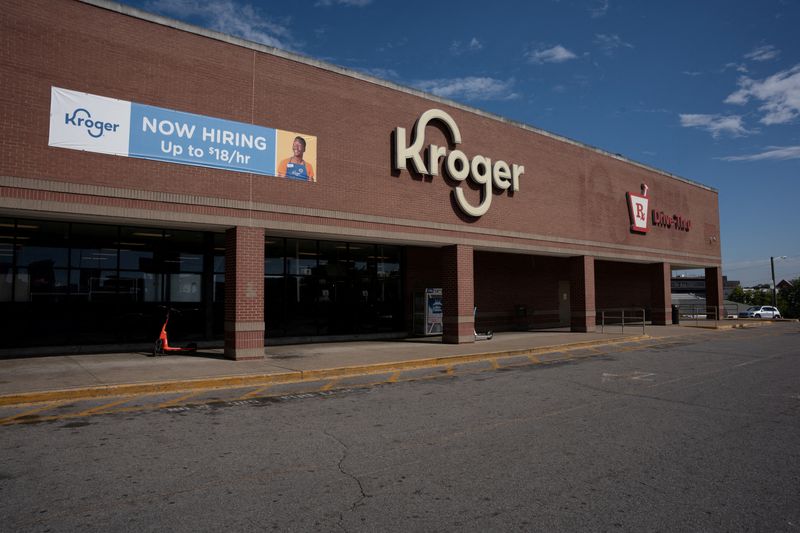By Nate Raymond (NS:RYMD)
(Reuters) -Kroger has agreed to pay $110 million to resolve a lawsuit by the state of Kentucky alleging the supermarket chain's pharmacies helped fuel a deadly opioid epidemic by flooding its communities with hundreds of millions of doses of addictive painkillers.
The settlement was announced on Thursday by Kentucky Attorney General Russell Coleman, whose state had opted to not participate in a broader $1.4-billion deal Kroger (NYSE:KR) finalized last year that resolved similar claims by 30 states as well as counties, municipalities and Native American tribes.
In a lawsuit filed in state court in February, Coleman had alleged that Kroger's more than 100 Kentucky pharmacies had been responsible for over 11% of all opioid pills dispensed in the state from 2006 to 2019, or about 444 million opioid doses.
The lawsuit alleged Kroger should have known based on the suspiciously high numbers and other red flags that the drugs were being diverted for illicit purposes, and should have taken measures to stop shipments and refuse to fill suspicious prescriptions.
Instead, Kroger continued to ship massive quantities of opioids throughout the state, failed to report suspicious orders to authorities and continued to dispense addictive drugs at "alarming" rates in Kentucky, which was hard-hit by the drug-addiction epidemic, according to the lawsuit.
"This massive grocery chain that asked for our trust and our business allowed the fire of addiction to spread across the commonwealth, leaving pain and leaving so much brokenness in its aftermath," Coleman said at a press conference.
The Cincinnati-based supermarket chain, whose $25-billion proposed merger with rival Albertsons (NYSE:ACI) was terminated after courts blocked the deal last month, said in a statement it hoped the settlement funds would be used to combat opioid abuse in Kentucky.
The company did not admit wrongdoing as part of the settlement and Kroger called the claims that it did not have internal training or guardrails around filling prescriptions for opioids "patently false."
According to the settlement agreement, Kentucky received a substantial premium above what it would have received had it joined the earlier broader settlement with Kroger. Had it done so, Kentucky would have recovered $66.6 million.

Drug manufacturers, distributors, pharmacy operators and others have agreed to pay about $50 billion to resolve lawsuits and investigations by states and local governments over their roles in the drug-overdose epidemic.
Nearly 727,000 people in the U.S. died from opioid overdoses from 1999 to 2022, according to the U.S. Centers for Disease Control and Prevention.